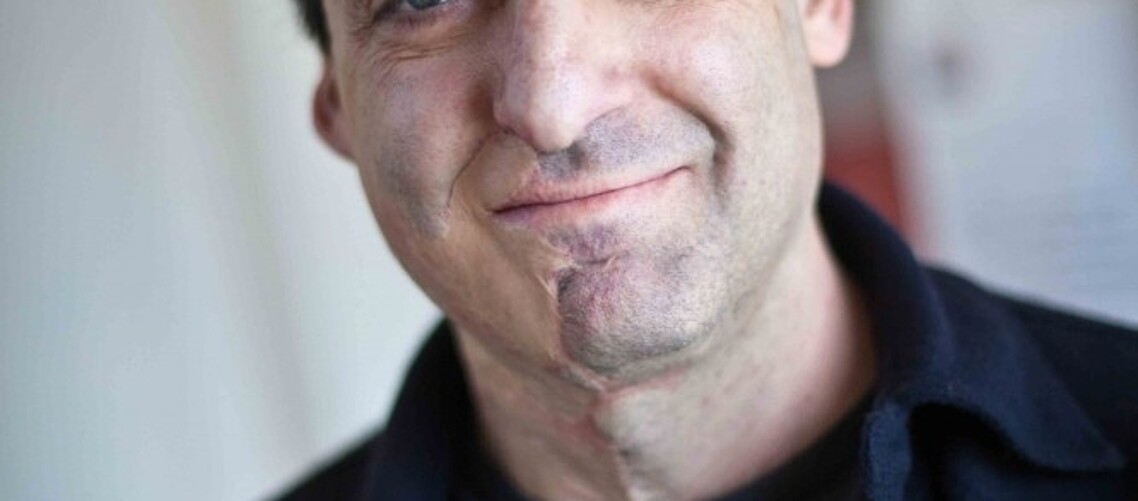RSM’s Prof. Ale Smidts, chair of the Department of Marketing Management, explains his reasons for choosing Dan Ariely for a dies natalis honorary doctorate. ‘Once you have met him and heard him speak,’ he says, ‘you know this is an exceptional human being.’ At 49, Ariely is one of the youngest scientists nominated for such an award by Erasmus University Rotterdam.
Human judgment and decision-making
A professor of psychology and behavioural economics at the marketing department of the Fuqua School of Business, Duke University, Ariely has published 130 journal articles in a 20-year period (that's an average of one every other month) on the subject of human judgment and decision-making. An inspiring mentor, writer and speaker, he captivates audiences with his ability to make the complex understandable and relevant. Most notably, his audiences are not only academics but also business people and the general public.
‘Few scientists in the marketing field are currently achieving such a broad impact,’ explains Prof. Smidts. ‘This is what we aspire to at RSM: outstanding scientific research that has great impact.’
‘Door to new activities’
Of the news of his honorary doctorate, Ariely said: ‘It's always a great honour to get an honorary degree but for me, I’m particularly happy this is from a Dutch university. Recently I've been collaborating more and more with Dutch institutions, starting with the Joep Lange Institute, where we are looking at healthcare in Africa. Erasmus University is one of the most impressive academic institutions in the world, with a tremendous business school and economics department. I'm looking forward not only to receiving the honorary degree but also to meeting new people, learning more about the university's current research, and creating new ties. I am hoping that this degree is not an end but a beginning – a door to new activities.’
Why his research matters
From early on, an important line of Ariely’s research has been devoted to the topic of dishonesty. The standard economic model of rational decision-making has posited that people act dishonestly because the magnitude of possible gain outweighs the probability of getting caught and its respective punishment. In his research Ariely demonstrated that, to the contrary, much of our decision-making is systematically (thus predictably) biased.
‘Ariely introduced a theory in which dishonesty stems from two opposing forces: the desire to benefit from dishonesty and the desire to view ourselves as moral beings,’ explains Smidts. ‘This struggle leads us to cheat just “a little bit”, thus benefiting from the dishonesty while still being able to feel good about ourselves.’
Prone to misbehave
His work reveals the inconvenient truth that we are all prone to misbehave. The good news: we cheat less than the rational model of crime would predict. Ariely identifies creativity and psychological distance as being among the drivers for this behaviour. People are more likely to take office supplies from the workplace than money, for instance, simply because we can more easily come up with rationalisations for taking away a pen.
‘In an economy where many transactions are digital, thus increasing greater psychological distances, his research predicts we may expect to see more cheating, for example in online dating profiles, digital insurance claims forms and tax forms,’ says Smidts. ‘His research also shows that taking pledges and ascribing to codes of conduct do not strongly affect behaviour unless there are reminders at the moment the behaviour might occur.’
Unorthodox experiments
Another example of his influence can be seen in his publication of a paper titled Neuromarketing: the hype and hope of neuroscience in business, jointly produced with neuroscientist Gregory Berns in 2010. Smidts coined the term “neuromarketing” in 2002 only to see it sullied by its association with commercial (mis)application. This paper saw the term once again become salonfahig, simply because it had been published in a top neuroscience journal.
Ariely's genius as a researcher lies, in part, in his ability to come up with creative, unorthodox and clever experiments to prove his theories, says Smidts. His outreach is much bigger than marketing. He publishes not only in top journals in marketing and management, but also in economics, psychology, neuroscience and medical journals. He is a superb mentor, says Smidts. Many of his former students are now well-known academics. His collaborators – he has worked with over 140 different co-authors – laud his creativity and talent.
Power of storytelling
And then there is his remarkable impact on businesses and policy makers. He publishes regularly in Harvard Business Review. He has had three books on The New York Times bestseller list: Predictably Irrational (2008), The Upside of Irrationality (2010) and The Honest Truth About Dishonesty (2012). In his bi-weekly advice column in The Wall Street Journal, ”Ask Ariely”, he provides scientifically informed advice on a huge range of topics.
As a speaker, Ariely is sought-after at conferences and seminars for academic, business and general audiences all around the world, sharing his research through the power of storytelling. Indeed, his five TED talks have been watched more than 14 million times. Through his Center for Advanced Hindsight, companies and policy makers access his talents via his consulting work.
‘Ariely has made an outstanding scholarly contribution to the field of marketing while having an impact on people, businesses and policy,’ explains Smidts. ‘He is simply an inspiration as a scientist.’
See the full list of RSM’s honorary doctorates here.
This article was first published in RSM Outlook winter 2016. You can download RSM Outlook here.
